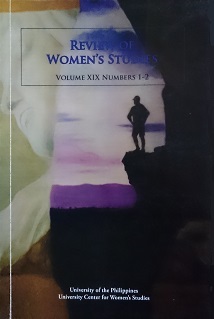(Dys)functional Studies: The Need for a Power Analysis of the Family in Migration Research
Abstract
This study focuses on two effects of the unproblematic assumptions of heteronormative and patriarchal family structures and dynamics, namely: that it prevents a more complete understanding of the positive and negative effects of migration on affective and reproductive relations and it results in lost opportunities for crafting better policies and programs that would lead to adequate social protection. It asserts further that these two effects are particularly cogent because, in the Philippines especially, migration for labor is becoming increasingly feminized as women migrate to do reproductive / sexual work (nannies, entertainers, caregivers, domestic workers, women in prostitution). Thus the lack of a gendered perspective on reproductive work within and outside the family fails to take adequate stock of the realities of migrant workers. Heteronormative assumptions also tend to reinforce women's oppression across the board.
Published
2023-05-10
How to Cite
ESTRADA-CLAUDIO, Sylvia.
(Dys)functional Studies: The Need for a Power Analysis of the Family in Migration Research.
Review of Women's Studies, [S.l.], v. 19, n. 1-2, may 2023.
ISSN 0117-9489. Available at: <https://journals.upd.edu.ph/index.php/rws/article/view/9007>. Date accessed: 01 sep. 2025.


